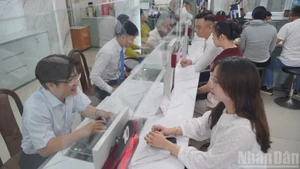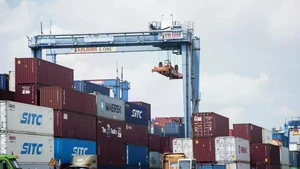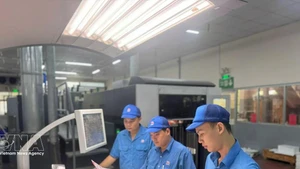Q: There are research results indicating that e-commerce is particularly suitable for SMEs, yet not many of them are in favour of this. What lies behind the paradox?
A: Based on surveys on thousands of companies across the country, the 2015 E-commerce Index Report stressed that the biggest difficulty in implementing e-commerce among the business community, especially SMEs, is human resources. Despite most of them being aware of the huge benefits brought by e-commerce, they do not have enough management skills and expertise to effectively exploit the advanced trading tool.
It is necessary to organise programmes and training in various forms to help SMEs capture the necessary skills, including awareness on the importance of internet domain names and website administration, as well as developing applications on mobile platforms and enhancing online marketing, online ordering and payment services.
Business leaders have not adequately assessed the impact of implementing e-commerce to the structure change of enterprises. Clearly, e-commerce is not simply building a website but it affects the entire business processes.
Q: Taking the story of Vu Dai village’s braised fish pots - a specialty of Hoa Hau commune in Ly Nhan district, in the northern province of Ha Nam that has been exported to foreign markets thanks to e-commerce - as an example, what other Vietnamese craft villages can learn from this?
A: One of the great advantages of e-commerce is global and timeless characteristics. Online exports have become a reality and are growing fast. This presents a huge opportunity for SMEs, especially household businesses in craft villages to expand their traditional market to the national and international scale.
State agencies and socio-professional organisations should support them in quickly building websites with advanced technologies at reasonable cost, offering them online marketing skills and helping improve quality of delivery service and finalising orders.
Q: In the context of Vietnam’s increasingly extensive integration in the world, to develop cross-border e-commerce, what should action programmes look like?
A: Rapid and comprehensive economic integration has created an opportunity for cross-border e-commerce to thrive. Vietnamese businesses will have new opportunities to be equal with foreign enterprises in expanding markets and exporting goods and services through e-commerce. Thanks to e-customs and online public services, Vietnam has laid the foundation for facilitating e-commerce.
However, it should be recalled that the challenge is still great and cross-border trade deficit through e-commerce cannot easily be dealt with. Vietnam’s market is attractive enough for the big foreign names to put more pressure on domestic enterprises. For example, joining China's sales channel Alibaba requires Vietnamese enterprises pay a membership fee of about US$3,000 a year, but there are thousands of domestic companies participating in the channel.
Obviously, it will take time for the country to develop its own successful e-commerce model, and good policies and mechanisms. Joint efforts by relevant authorities are also important factors for e-commerce development in Vietnam.
Q: And what about the VECOM’s role? What will the action plan be?
A: In 2016, VECOM will organise more training programmes at the local level to raise awareness of businesses on the technology trends and online business skills, including connecting SMEs with advanced solution providers for e-commerce websites.
The association will also implement several activities to help enterprises better access online marketing services, as well as attaching great importance to co-ordinate with communication units to promote SMEs, household businesses and individuals who have succeeded in e-commerce.
















